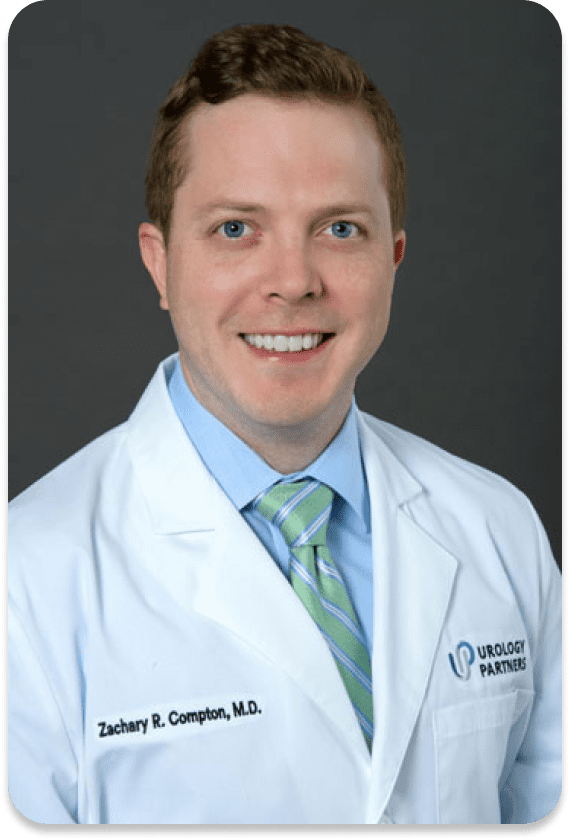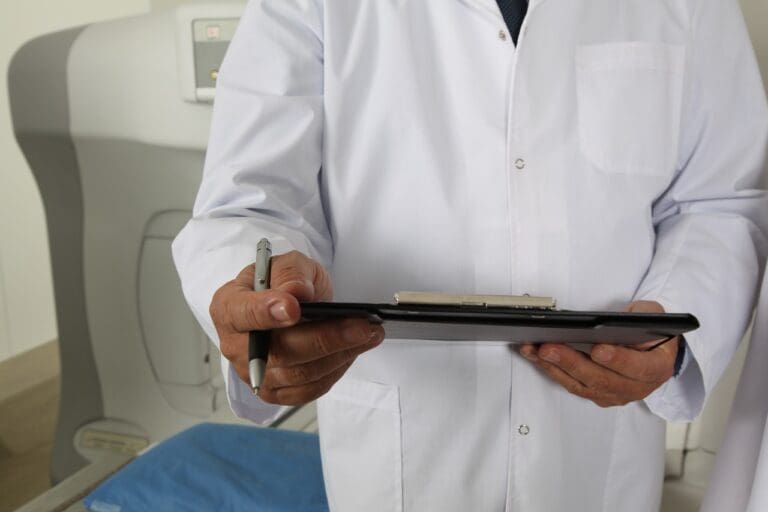Dr. Compton didn’t always know he wanted to be a physician. “I didn’t have an epiphany or cathartic moment when I was growing up that put the idea in my mind,” he admits. “There aren’t any physicians in my family, so it wasn’t being exposed to medicine as a kid.”
Clarity came later for Dr. Compton while he was pursuing an undergraduate degree in psychology at Wake Forest University. and decided to combine his love for analytical thinking with something more personal. “I was attracted to the idea of thinking scientifically, but using it in a humane and more personal way to help others,” he adds. “Medicine allows me to do both.”
In medical school, the idea of a surgical specialty appealed to him. When he did a rotation in urology, all the pieces fit together.
“I like that urology isn’t just based on treating disease, but focuses on treating the person as whole,” Dr. Compton explains. “A lot of it has to do with actually improving a patient’s quality of life. Many times, patients are struggling with deeply personal urologic problems that they don’t even tell their spouses or family members about. A urologist is often the first person they talk with about these issues, so it is a tremendous privilege when a patient opens up and entrusts me with their care.”
Today, Dr. Compton helps men and women overcome a range of urologic issues—including enlarged prostate, erectile dysfunction, incontinence, bladder and kidney cancer, and kidney stones.
“It’s important not to separate the disease from the individual,” he says. “I always want my patients to feel comfortable and confident knowing they have a safe place to discuss their health concerns. A good relationship and honest conversation are key to proper diagnosis, treatment and the best possible outcome. It’s rewarding when we can develop that bond and I’m able to provide a meaningful benefit to someone.”
Dr. Compton earned his medical degree at the McGovern Medical School at the University of Texas Health Science Center at Houston (UTHealth), and completed both his surgical internship and urology residency at UTHealth.
When he isn’t caring for patients, he and his wife (a transfusion pathologist at UT Southwestern) are immersed in the joyful chaos of caring for their two young children and spending time with their extended family.





